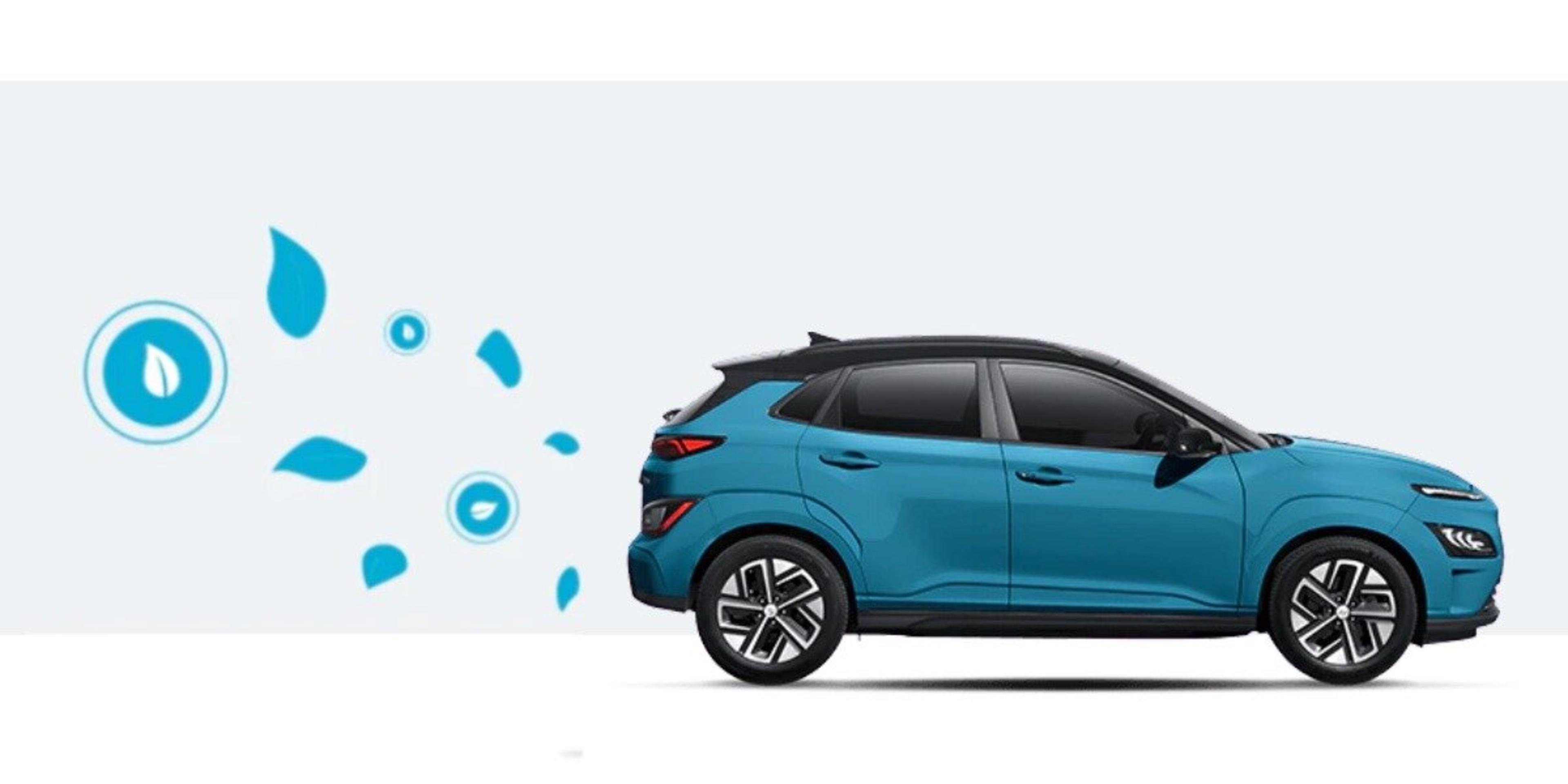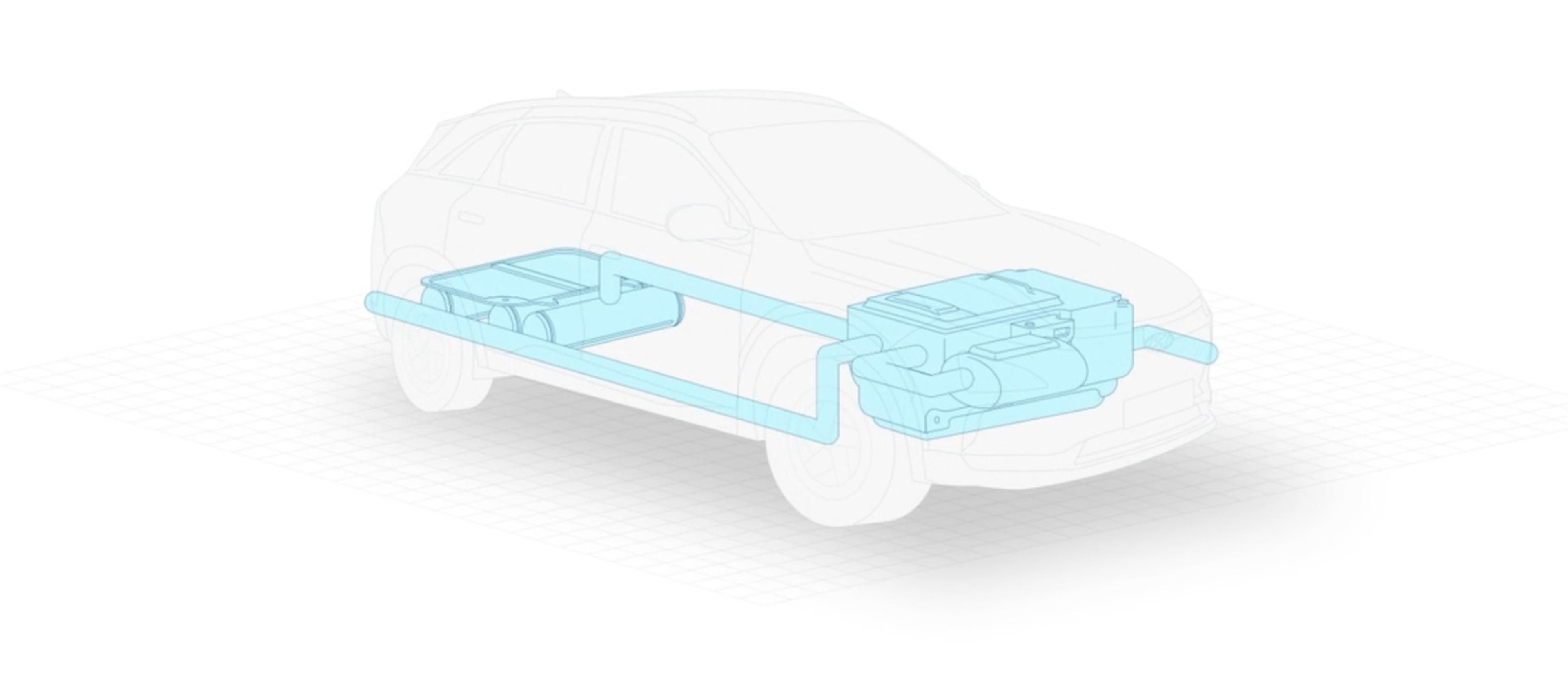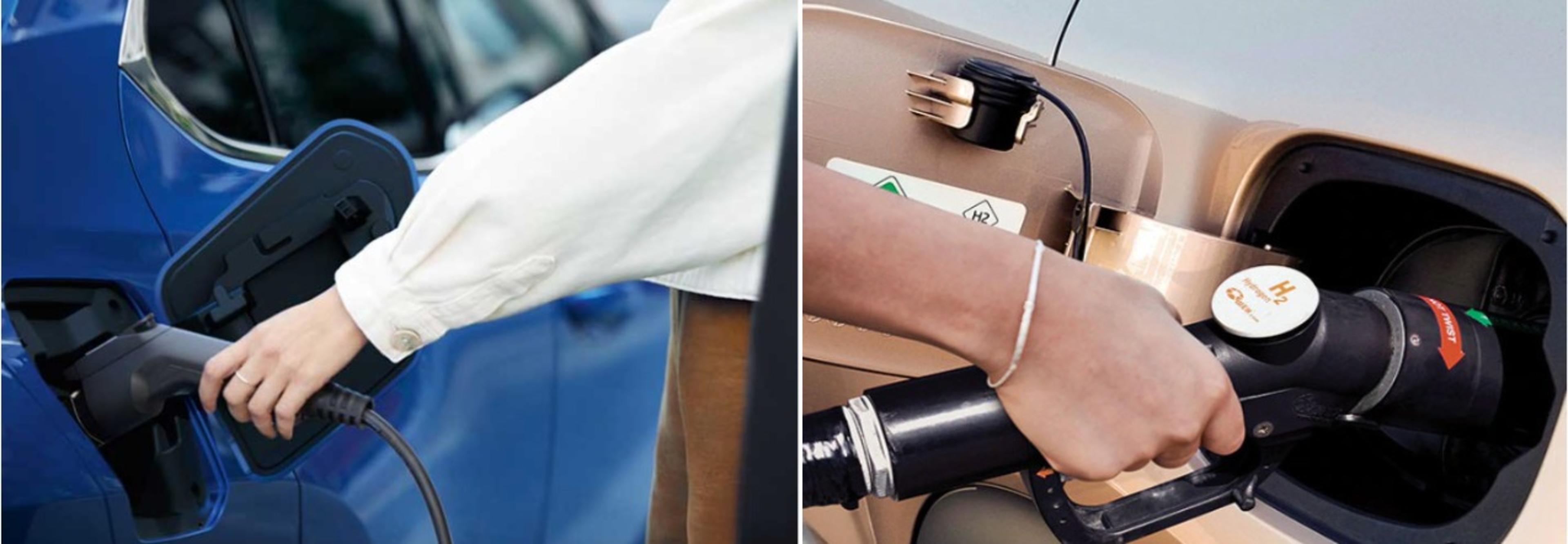Hydrogen fuel-cell vehicles: Everything you need to know

Tynan Motors - 21st November 2022
Hydrogen has long been promoted as a nearly miraculous fuel that emits just water. It may have just entered the spotlight due to climate change and geopolitical unrest. According to specialists, hydrogen fuel cells are a perfect fit for rail and transportation.
How do they work?
As society strives for more eco-friendly options, hydrogen fuel cells become the ultimate energy source. These advanced fuel cells in hydrogen vehicles offer high fuel efficiency and an ultra-quick refueling time of five minutes. These hydrogen vehicles only emit water vapor from the exhaust and purify the air as it drives.
Hydrogen fuel technology:
- The hydrogen fuel is stored in a tank and supplied to the fuel cell stack
- The inflow of air is then supplied to the fuel cell stack
- The hydrogen and air react with each other within the fuel cell stack to generate electricity and water
- The generated electricity is supplied to the motor and battery
- Water and purified air come out of the exhaust after all this

Electric cars vs Hydrogen-powered cars
While electric cars are getting attention, with major manufacturers focusing on making them dominant by 2030, hydrogen vehicles are staying in the background for now. Hydrogen fuel-cell vehicles are another zero-emission vehicle that only emits water vapor during use. The ratio of electric vehicles to hydrogen fuel cells is substantial with electric vehicles taking a major lead.
The National Renewable Energy Laboratory has results that support the idea that there is space for both technologies. Each of these powertrain options holds cost-of-ownership advantages in certain business scenarios and route distances. Their report has come to suggest that as early as 2025, both these technologies could be cost-competitive with diesel vehicles.

Are Hydrogen Cars currently available?
Hyundai has introduced NEXO, the world’s first and only Hydrogen fuel cell SUV. They are committed to playing their part in creating a sustainable, earth-conscious future. Hyundai is
focusing on evolved vehicles that co-exist in our environment that still elevate our day-to-day lives. As the first company to mass produce a hydrogen-powered electric vehicle, Hyundai is an official member of the global Hydrogen Council and is working with the government to develop the necessary charging infrastructure. It’s all part of their belief that the future of motoring lies in hydrogen fuel cells.

The future of hydrogen vehicles
Hydrogen energy is the key to building a more sustainable future. Hydrogen fuel cell engines generate electricity by mixing oxygen with compressed hydrogen to create a flow of electrons. It’s brilliant, efficient, and only emits pure clean water. Better still, the efficient and durable air purifier filters remove 99.9% of micro-particulates.
“A good rule of thumb is that you’ll see hydrogen fuel cells where you see diesel today and battery electric where you see gasoline,” said Tom Stephenson, co-founder of Pajarito Powder, a New Mexico hydrogen components startup backed by Hyundai Motor Group.

Why Hyundai?
If you’re considering more environmentally-friendly options, Hyundai is the brand for you. Blue drive is a collection of new innovative technology that Hyundai has utlised to assist in improving fuel consumption and reducing exhaust emissions. With Blue Drive models throughout Hyundai’s range offering leading eco-performance, Hyundai's new thinking means real and practical ways to substantially reduce emissions that are available now. Tynan Hyundai has officially been confirmed as a Blue Drive dealer and is ready to assist those seeking to contribute to a sustainable and earth-conscious future.
Sourced: Car and Driver, Public News, and Hyundai
